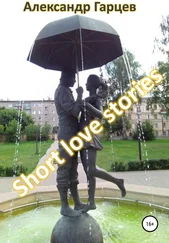Or with the hooded man, his mind lit by a firefly as he tries to recall a room he once attempted to memorize when it became increasingly clear to him that he would soon be banished.
FIRE! I AM GIVING YOU A DIRECT ORDER.
How heavy their extended rifles have become. The barrels teeter and dip, and seem to be growing like Pinocchio’s nose, although it’s common knowledge that rifles don’t lie. Still, just to hold one steady and true requires all the strength and concentration a man can summon.
Turn on the bed lamp the better to illuminate the target. On some nights the silk shade suggests the color of lilacs and on others of areolas. See, the bat has vanished, which doesn’t mean it wasn’t there.
FIRE! OR YOU’LL ALL BE SHOT!
The lamp rests on a nightstand with a single drawer in which she keeps lotions and elixirs and stashes the dreams she records on blue airmail stationery when they wake her in the night—an unbound nocturnal diary. She blushed when she told him the dream in which she made love with the devil. He liked to do what you like to do to me—what we like, she said.
In the cracked mirror each member of the squad sees himself aiming at himself. Only a moment has passed since the “Aim” command, but to the members of the squad it seems they’ve stood with finger ready on their triggers, peering down their sights, for so long that they’ve become confused as to who are the originals and who are the reflections. After the ragged discharge, when the smoke has cleared, who will be left standing and who will be shattered into shards?
PLEASE, FIRE!
I can’t wait like this any longer.
Non ho amato mai tanto la vita.
… ai-je enfermé sous ma langue un pays,
gardé comme une hostie.
—Nadia Tueni, Liban: Vingt poèmes pour un amour
A seiche warning was in effect. Both the Chicago Tribune and the evening news featured accounts of the killer seiche of June 26, 1954, when a wave ten feet high and twenty-five miles wide rose from a placid Lake Michigan and swept seven fishermen off a breakwater at Montrose Harbor to their deaths. Atmospheric conditions were right for another.
Were the beaches closed? I’m no longer sure. In memory, Lake Shore Drive is empty, barred to traffic, as if awaiting a tsunami. I imagined the seiche like a towering wave from a Hiroshige print, all the more menacing for its froth of moonglow, suspended for a heartbeat before dashing against the night-lit skyline. I didn’t want to miss it.
When I considered a vantage point, what came to mind was a single-story utility shed in the shadow of Madonna della Strada, the Art Deco cathedral on the Lake Shore campus of Loyola University. I’d attended Loyola on a track scholarship. Now I was a caseworker for the Cook County Department of Public Aid. My district was Bronzeville, on the South Side, not far from the barrio where I grew up. I was living on the North Side, in Rogers Park, the neighborhood surrounding the university, and on nights when I couldn’t sleep I had taken to going back to the campus to run as if I were still training for races. Lately, that was most nights. I’d never had insomnia before and wondered if the job was getting to me.
I’d dug out my old track shoes. A potholed, obsolete cinder track circled the soccer field. I set up the hurdles I found toppled together in the nearly obliterated broad jump pit, and ran imaginary heats until my shirt was pasted to my back by sweat and I gasped for breath. Then, to a ticktock of crickets and lawn sprinklers, I jogged from campus along front yards, hurdling hedges and fences along the darkened residential blocks to the deserted beach at the end of Columbia Avenue. I stripped down to my jockstrap, draped my shoes, shorts, and the T-shirt that would later serve as a towel over a crossbar of the lifeguard chair, and waded out. A moonlit sandbar sloped gradually deeper; underfoot, the sand had assumed the undulations of waves. Waist-deep, I slid into the cool night water and swam from the city without looking back until I was out far enough to imagine I had crossed the boundary of a wake left behind long ago by a priest I once watched swim.
* * *
At least, people said he was a priest. I watched his implacable crawl during the summer after my senior year—a confused, solitary time. In the space of the few months before graduation, I had become more involved than I’d realized with an exchange student who had returned suddenly to Beirut to attend the funeral of her grandfather. She had been in the States only since the start of the academic year. Her name was Nisa. We’d met during the winter semester in a poetry class. The first assignment was for each student to memorize and recite a favorite poem. “Howl” was too long, so I chose Eliot’s “The Love Song of J. Alfred Prufrock.” At a hundred and thirty-one lines, it took five minutes to declaim. When it was Nisa’s turn, she rose from her seat with her tangle of black hair pouring down her back and in a clear voice recited:
I want to be where
your bare foot walks,
because maybe before you step,
you’ll look at the ground.
I want that blessing.
Then she quickly sat back down. Her recitation had lasted moments. She didn’t say who’d written the poem; no one inquired. I’d never heard a poem like that, a poem direct and sensual, and it occurred to me that perhaps she had written it and was too shy to admit it. I didn’t ask in class for fear of embarrassing her, but I wanted to hear the poem again, to copy it down, and read more like it. After class, I caught up with her and asked who wrote it.
“Rumi,” she said.
“Who?” I asked. Rumi was hardly known in America then, though years later he became a New Age bestseller.
“Jalaluddin Rumi. He wrote in Persian in the thirteenth century. He was a Sufi, an ecstatic.”
“Mind if I walk along with you?” I asked.
“ Let us go then, you and I ,” she said in a portentous voice, mimicking my recital of “Prufrock.”
We walked to the library, where she helped me find an anthology of Persian poetry. Until reading about Sufi mysticism in the introduction, I hadn’t realized that the poem Nisa had recited was a prayer to God, rather than the sensual love poem I’d taken it to be. I decided not to mention my disappointment. Her family was Maronite Christian. Although I had some vague notion that Maronites were connected to the Greek Orthodox Church, I was ignorant as to how they differed from Catholics. I wondered if Nisa’s upbringing had been a strict Christian equivalent to that of Muslim women required to wear burkas. When I asked if she was religious, she told me that she made a distinction between living by religious tenets and living her life in a way that allowed for the spiritual. She believed the sacred was everywhere, hidden only because we are not taught to see. She wanted to know what I believed in. I told her that my current saint, if I had one, was Albert Camus, who wrote, “I do not believe in God and I am not an atheist.” She asked if I knew that my name, Jack, meant God is gracious . Trying to joke, I asked if her name, Nisa, had anything to do with Phoenicia.
“Actually,” she said, speaking slowly and clearly, as if to the village idiot, “it means woman .”
We began meeting at the library after class, discussing poems and novels, and then everything else. By mid-March, on days posing as spring although the tulip trees on campus were still a month from flowering, we’d walk along the lake or wander through neighborhoods, sometimes cutting class. There was a dreamy, timeless ease to those walks, a sense—so brief in a lifetime—when being in college seems like a form of sanctuary. We’d walk for miles and stop along the way at little Mideastern places where the food was cheap, fresh, and fragrant with lemon, parsley, and mint—storefronts I’d have passed by. I’d tease Nisa that her homesickness expressed itself as hunger, and she’d say she wanted me to taste the flavors she grew up with. She could turn the city I was born in into a different city, one that would otherwise have remained invisible.
Читать дальше












